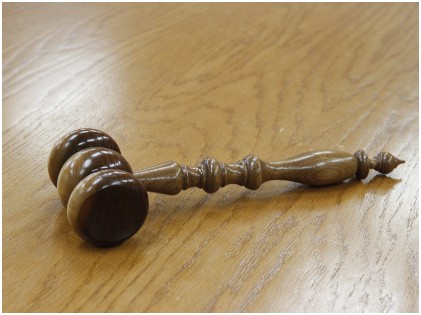When parties consent to an arbitration agreement and sign on the dotted line, they are bound by the terms of the agreement. The claimant kick starts the arbitration proceedings against the other party or the respondent. During the proceeding, the assumption is that both the claimant and the respondent will co-operate without creating an issue that can prove to be a hindrance.
However, one party, mostly the respondent, might refuse to participate in the proceedings, causing an issue. What happens when a party refuses to co-operate and participate in arbitration proceedings? The following points would delve into this.
Possible Reasons For Non-Participation

There might be several reasons why a party might decide non-participation. It can be an effort to save money. Aside from that, factors such as restructuring, liquidation proceedings, moratorium protection supervised by the court, financial constraints, etc., can be the reasons for non-participation. By not cooperating with the proceedings, they can also attempt to prevent the arbitrator from awarding the judgment during the enforcement stage.
What Happens When A Party Refuses To Participate?
Irrespective of the reasons behind the respondent’s non-participation, what happens in such cases, and how will the arbitrator make sure that they would enforce an award in favor of one party? As per most of the arbitration rules, if a respondent fails to participate, the proceedings will go on.
Article 6(8) of the ICC Rules states that the arbitration process will continue even if either party refuses to participate or show up. One can find similar provisions in Article 35.2 of the SCC Rules, Article 30 of the UNCITRAL Rules, Rule 20.9 of the SIAC Rules, and Article 15.8 of the LCIA Rules.
The Proceedings To Be Continued
Article 25 of the UNCITRAL Model Law states that unless both the parties agree to it, if the claimant does not put forward his claim without furnishing proper reasons, as per article 23(1), the tribunal has all the right to terminate the arbitration. The next clause states if the respondent doesn’t put forward a statement of defense without giving any reason, then as per article 23(1), the arbitration needs to continue.
The failure to communicate will count as an admission of all the allegations coming from the claimant. If a party doesn’t make an appearance at a hearing or fails to furnish documentary evidence. In that case, the tribunal has the right to continue with the proceedings and award its judgment based on the available evidence. The same finds a mention even in Section 41 of the English Arbitration Act 1996. Many other national arbitration laws also contain a similar provision.
Arbitrators Have The Authority To Proceed
 The international arbitration laws have a well-laid-out principle. It provides the arbitrators with inherent power to proceed with the arbitration when the other party refuses to cooperate or participate. The arbitrators also reserve the right to issue an award in favor of one party.
The international arbitration laws have a well-laid-out principle. It provides the arbitrators with inherent power to proceed with the arbitration when the other party refuses to cooperate or participate. The arbitrators also reserve the right to issue an award in favor of one party.
The tribunals have the power to move forward with the arbitration proceedings even without the claimant or the respondent. This applies even if they don’t have the authorization from national laws. One must note that a default award is always in favor of the claimant. The topic of explicit confession doesn’t arise, as it does in a few national systems. The tribunals retain the power to move ahead with ex parte proceedings even though the other party fails to participate, irrespective of the outcome.
There Are Guidelines Too

Now, the problem lies elsewhere. Neither arbitration law nor procedural rules throw proper light on how they should carry out the proceedings if any party refuses to participate.
This is why an International Arbitration Practice Guideline on Party Non-Participation has been issued by the Chartered Institute of Arbitrators of the UK. It provides some practical and useful guidelines that deal with the best practices in commercial arbitration conducted internationally. These guidelines help them understand how they could go forward with the process. And how they can do so even without the cooperation of the disputing parties.
The arbitrators take a decision and award a judgment basing on the evidence and material they have. After that, the enforcement courts should take things forward. And the disputing parties cannot contest even if the judgment works in favor of just one of them.




